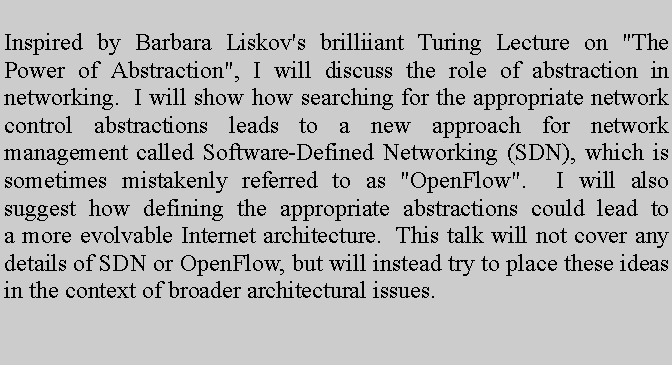
|
Richard Conway and Robert Walker were instrumental in the founding of Cornellís Computer Science Department in 1965, convincing senior administrators of the need for a PhD program and securing generous funding from the Sloan Foundation to help launch the fledgling unit.
Richard Conway, during his long and varied career at Cornell, held a faculty position in Computer Science from 1965 to1983, serving as Chair of the Department 1978-79 and 1983-84. He is a member of the National Academy of Engineering and is widely known for his fundamental contributions to scheduling and computer simulation. Dick is a faculty emeritus of the Johnson School of Management.
|




|
Scott Shenker U.C. Berkeley
Scott Shenker spent his academic youth studying theoretical physics but soon gave up chaos theory for computer science (after a postdoctoral year at Cornell). Continuing to display a remarkably short attention span, his research over the years has wandered from computer performance modeling and computer networks to game theory and economics. Unable to hold a steady job, he currently splits his time between the U. C. Berkeley Computer Science Department and the International Computer Science Institute. |

